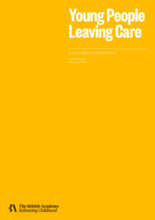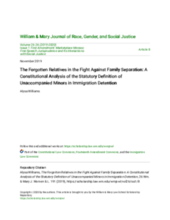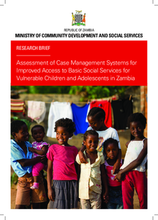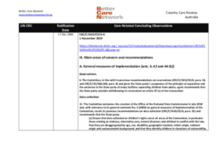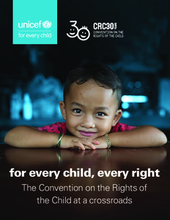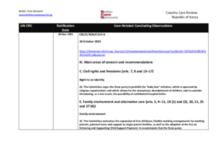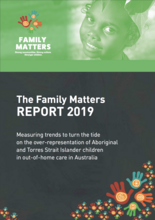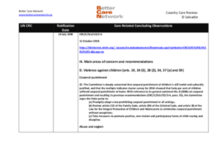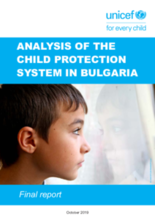Displaying 291 - 300 of 1796
This case study seeks to summarise the policy priorities of the four UK nations for care leavers, review outcomes for which data is publicly available, and discuss a number of areas where policy differences can be identified.
This Note will examine some of the legal arguments surrounding the issue of family unity in immigration detention in the U.S. and how justice can be sought for the minors wrongfully classified by the government as “unaccompanied.”
The purpose of this assessment is (a) to review existing case management systems within and in relation to the Ministry of Community Development and Social Services (MCDSS) in Zambia and (b) make recommendations on how case management can be enhanced to ensure more efficient and effective service delivery to vulnerable children and adolescents.
This country care review includes the care related Concluding Observations adopted by the Committee on the Rights of Persons with Disabilities and the Committee on the Rights of the Child.
Published in connection with the 30th anniversary of the Convention, this report is intended as an advocacy tool to both celebrate the achievements of the past three decades and generate dialogue on the critical work that remains – especially for children who have been left behind.
This country care review includes the care-related Concluding Observations adopted by the Committee on the Rights of Persons with Disabilities and the Committee on the Rights of the Child.
This chapter examines how the competing goals of child welfare systems work with the developments in constitutional rights.
The Family Matters report sets out what governments are doing to turn the tide on over-representation of Aboriginal and Torres Strait Islander children in out-of-home care in Australia and the outcomes for children and their families.
This country care review includes the care related Concluding Observations adopted by the Committee on the Rights of the Child and the Committee on the Rights of Persons with Disabilities as part of its examination of El Salvador's initial reports, as well as other care-related concluding observations, ratification dates, and links to the Universal Periodic Review and Hague Intercountry Adoption Country Profile.
This research is based on a stock-taking of the current situation. It is based on a comprehensive literature review and a genuine primary research with service users as well as policy makers, service providers, children and families.

